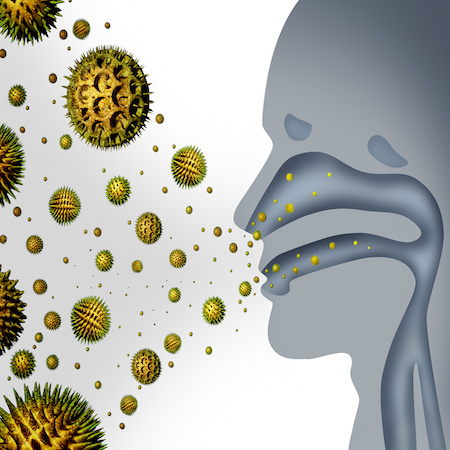New data from London Medical Laboratory indicates the symptoms of the latest Covid Omicron variants are, initially, almost identical to those of many allergies, including hay fever. Although Covid cases are falling across the UK, the virus can pose significant dangers to some, including long Covid and brain fog, so it is essential that people correctly identify the cause of their symptoms.
The leading testing expert, Dr Quinton Fivelman PhD, Chief Scientific Officer at London Medical Laboratory, says: “Mid-May is the peak season for everyone who suffers from pollen allergies. That’s because tree pollen runs from late march to mid-May, and grass pollens from mid-May to September. Now is the unfortunate time when both coincide.
“For most people, the pollen season is only a problem because it triggers allergies such as hay fever. However, there is a new danger this year. The symptoms of the latest Omicron variants of the ever-changing COVID-19 virus are extremely similar to common reactions to pollen, such as allergic rhinitis - commonly known as hay fever.
“London Medical Laboratory’s latest testing data reveals one in three people are now showing potentially severe allergies - 32% more than previous estimates by the NHS. That means one in three of us are liable to mistake Covid for our annual hay fever and allergy symptoms. It’s crucial that we don’t.”
Common symptoms shared by hay fever and the latest Omicron variants include fatigue, headache, runny nose, sneezing and a sore throat. The main difference, however, is that allergies do not cause a temperature, so anyone with a fever is more likely to be suffering from Covid or the flu.
Dr Fivelman continues: “Intense fatigue, body aches (especially in the joints) and a dry cough are typical ‘classic’ Covid symptoms. They are rarer with Omicron, but it’s a good indicator you are suffering from Covid if you do develop them. Conversely, itchy noses and watery eyes are more likely to be the symptom of an allergy than Omicron.”
Blood tests and allergy tests are other methods by which people can establish whether they are likely to be suffering from an allergy.











